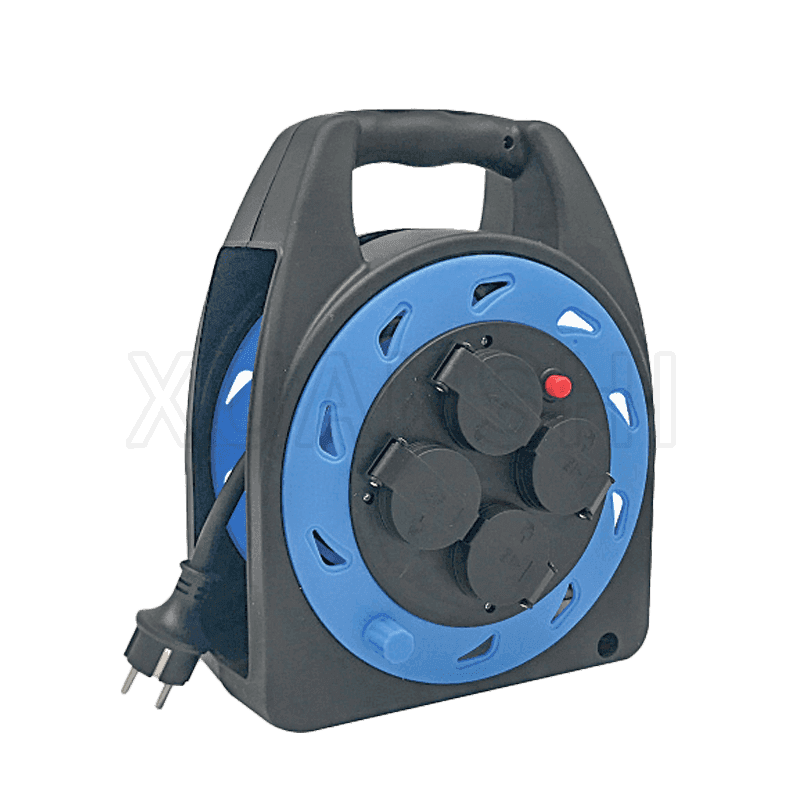Extension cables and cords are essential tools for connecting power to devices that are located further away from an outlet than the cord that comes with it will reach. They allow you to work or use your devices in any part of your home or workspace without being tethered to the wall. However, when it comes to choosing between an extension cable reel and a traditional extension cord, many people may not be sure which one to go for. In this article, we'll take a closer look at these two options and help you determine which is right for you.
Extension Cord Reels
Extension cord reels are devices that store a length of electrical cable on a spool, which can be easily rolled and unrolled as needed. They come in various sizes and lengths, and some are even retractable. Extension cord reels can be mounted on walls or ceilings, making them a convenient option for workshops and garages where there is limited space.
The main advantage of extension cord reels is that they help to keep your workspace organized and tidy. Since the cable is wound up on a spool, you don't have to worry about tripping over it or getting it tangled up. Also, extension cord reels provide an easy way to move power around a workspace as they can be easily rolled to where you need them.
However, extension cord reels do have some disadvantages. They tend to be more expensive than traditional extension cords, and they may not be as portable. Additionally, they can be difficult to store, especially if you have limited space.
Traditional Extension Cords
Traditional extension cords are simply long cables that can be plugged into an outlet on one end and a device on the other. They come in various lengths and gauges, and they are generally more affordable than extension cord reels. Traditional extension cords are portable, meaning they can be used in any location, both indoors and outdoors.
One of the main advantages of traditional extension cords is their affordability. They are less expensive than extension cord reels, which is an important factor for many people. They are also highly portable, meaning they can be used in various locations and settings.
However, traditional extension cords can be difficult to store and can quickly become tangled or damaged. Additionally, they may not be as safe as extension cord reels since they can easily become a tripping hazard or be damaged by being run over by vehicles or heavy equipment.
So, Which Is Right for You?
Ultimately, the choice between an extension cord reel and a traditional extension cord depends on your individual needs and preferences. If you have a workshop or garage with limited space, an extension cord reel may be the better option as it can be mounted on a wall or ceiling, keeping your workspace organized and free of trip hazards. However, if you need a portable solution for powering devices both indoors and outdoors, a traditional extension cord may be more suitable for you.
In conclusion, both extension cord reels and traditional extension cords have their pros and cons. Consider your specific needs and the environment in which you will be using them to determine which option is best for you.

Material Plastic shell
Wiring H05RR-F 3G1.5mm²(max.25m)max.3000W (unreeled)
H05RR-F 3G2.5mm²(max.15m)max.3600W (unreeled)
H07RN-F 3G1.5mm²(max.20m)max.3000W (unreeled)
H07RN-F 3G2.5mm²(max.12m)max.3600W (unreeled)
H05VV-F 3G1.5mm²(max.35m)max.3000W (unreeled)
H05VV-F 3G1.0mm²(max.40m)max.2200W (unreeled)
H05RR-F 3G1.0mm²(max.40m)max.2200W (unreeled)
H05RN-F 3G1.0mm²(max.40m)max.2200W (unreeled)
